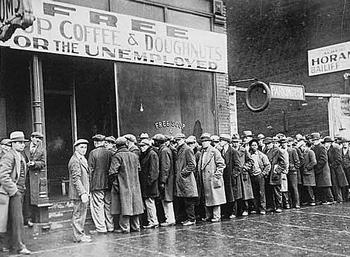Yesterday Fox News reported that there was an increase in unemployment in a majority of the states. In this article I want to discuss how losing your job impacts your ability to file a Chapter 7 bankruptcy.
First, one of the changes made to the bankruptcy code back in 2005 was the addition of the means test. The means test is the forumla that has been imposed on people needing to file for Chapter 7 bankruptcy. Factors that go into this formula are your income and monthly expenses. In order to file for Chapter 7 bankruptcy, you must make at or below what a typical family of your size makes in Arizona. If you have recently lost your job you may be thinking this will make it easy to qualify as your income is now likely very low. However, when determining what your “income” is, the bankruptcy court will look to an average of your monthly income over the last 6 months.
So if you have been unemployed for 1 month, but made very good money at your job the 5 months before that, you may not qualify to file a Chapter 7 bankruptcy at this point. However, if you wait a month or two and bring down your overall monthly average, you may then qualify. The chart below represents qualifying gross annual/monthly income limits for a Chatper 7 bankruptcy:
Household Size – Annual Income/Monthly Income
1 – $42,628/$3,552 5 – $76,352/$6,362
2 – $56,894/$4,741 6 – $83,252/$6,937
3 – $62,066/$5,172 7 – $90,152/$7,512
4 – $69,452/$5,787 8 – $97,052/$8,087
*$6,900 per person thereafter
There are times when the means test seems unfair and makes it more difficult for people who really need to file a Chapter 7 bankruptcy from doing so. It seems ridiculous to my clients who have not been employed for two months when I tell them that they have made too much money to file a Chapter 7. In most cases waiting a month or so will reduce the overall monthly average to enable the client to file a Chapter 7 bankruptcy case.
How the Means Test Can Work to Your Advantage
While sometimes the means tests makes it more difficult to file a Chapter 7 case, it can actually work the other way as well and enable a family who recently received a raise or spike in pay to still qualify for a Chapter 7 case. For instance, let’s say that the income for a family of four here in Arizona recently rose due to a job change. Now they are bringing home about $10,000 per month. However, over the last 6 months the income was at a $5,500 level. Even though currently the income is too high for a Chapter 7 filing, when looking at the prior 6 months this family would still qualify for a Chapter 7 bankruptcy.
Is a Chapter 7 Bankruptcy the Best Option?
All of this discussion on qualifying for a Chapter 7 case leads to the question of why someone would want to file a Chapter 7 case as opposed to a Chapter 13 bankruptcy. The overwhelming majority of bankruptcy cases that are filed are Chapter 7 cases. Chapter 7 has many qualities that make it the more attractive option if you must file for bankruptcy. First, it is a much shorter process than a Chapter 13. The typical Chapter 7 bankruptcy case in Arizona takes about 4 to 5 months (this is smokin’ fast for anything in federal court!). In comparison Chapter 13 bankruptcy cases will last a minimum of three years up to five years.
Second, a Chapter 7 bankruptcy will grant you a complete discharge of your unsecured credit card-type debts. In a Chapter 13 case you will be required to pay back a portion of your debts through a monthly payment to the bankruptcy court. Third, the recovery period for a Chapter 7 bankruptcy starts sooner simply because the case ends so much more quickly than a Chapter 13 case does.
Chapter 13 has many powerful tools that a Chapter 7 bankruptcy does not offer. And if you are trying to save your home from foreclosure often Chapter 13 is the only way to go. But if your main problem is credit card debt, medical debt, or if you are simply looking to give your house back to the bank, most people will be much happier with a Chapter 7 bankruptcy filing.
My experience in meeting with clients lately confirms the news story on Fox News. I am seeing quite a few people who have recently lost their jobs or who are worried that they are next on the chopping block. If you are dealing with a job loss and are concerned with your current debt situation, give me a call and I can give you information to help you in making the best decision for you and your family. My bankruptcy consultations are always free. I can be reached at (480) 420-4028 or shoot me an email at john@skibalaw.com .
Schedule a Free Consultation!
 John Skiba, Esq.
John Skiba, Esq.
We offer a free consultation to discuss your debt problem and help you put together a game plan to eliminate your debt once and for all. Give us a call at (480) 420-4028

